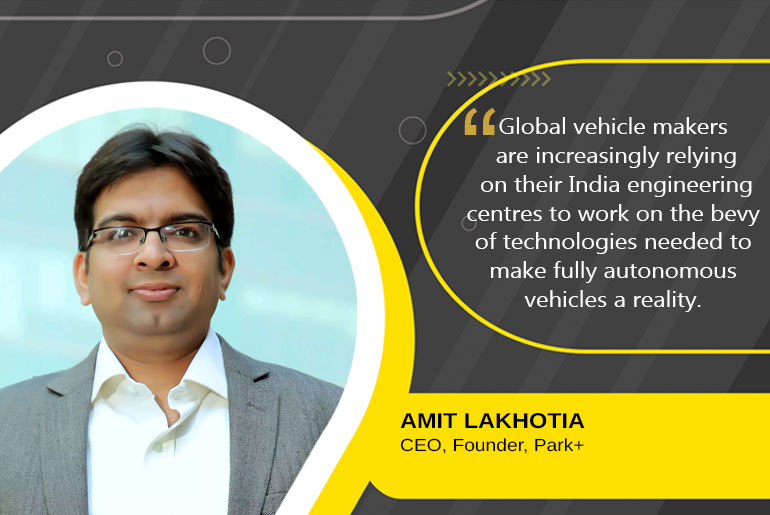The sight of driverless fleets will be no less than a cinematic dreamscape brought to life. Are Autonomous Vehicles (AVs) possible? Technology says yes. But not with our current infrastructure. Internet connectivity and road support aside, it is currently not legal in India to have an autonomous car driving around. In fact, it is not even legal to test-run an autonomous car. So, before we envision a future of driverless, autonomous mobility, we have some stringent regulations and infrastructural issues to combat. Regardless, it is not illogical to map out the transformative effects of urbanization, the unrelenting force that is shaping the 21st century.
Urbanization informed by AVs
As urbanization continues to shape our world, the rise of autonomous vehicles is poised to redefine how we perceive mobility within cities. Auto-tech companies, riding the wave of innovation, are no longer mere supporters of this transformation; they’re positioned to lead. Work on autonomous vehicle tech isn’t just being done in automotive strongholds like Japan and Germany. Global vehicle makers are increasingly relying on their India engineering centres to work on the bevy of technologies needed to make fully autonomous vehicles a reality.
Indian Carmakers Taking the Lead
Indian carmakers are equally involved. India is poised to develop and install an Advanced Driver Assistance System (ADAS), complete with features for collision mitigation, lane departure warning, and more. ADAS comprises a set of sophisticated safety systems designed to assist drivers, incorporating a wide variety of technologies, including electronic stability control, anti-lock braking, driver state monitoring, lane departure warning, and autonomous emergency braking, to help avoid or mitigate accidents altogether. ADAS uses several key components, such as a camera, radar, LiDAR, ultrasound sensors, controllers, and actuators.
Adapting AV Tech to the Indian Market
To develop the AI models capable of accurate object recognition, the models have to be trained on petabytes of annotated data and then validated. Engineers in India are doing innovative work in this space and adapting them for the Indian market with features like adaptive cruise control (ACC), lane keep assist (LKA), which involved creating a model for the Indian environment. With dynamic traffic management, static traffic signals may become a thing of the past. Urban parking is undergoing a significant shift. Passengers can have their cars drop them off and then park themselves. Startups can now develop automated parking solutions, and city planners can reuse parking lots as green zones or recreational locations. With the potential of AVs comes the need for cities to rethink pedestrian safety zones. By developing pedestrian recognition systems and “school zones” where AVs automatically adhere to reduced speeds, auto-tech innovators are working to ensure that AVs and pedestrians can coexist peacefully.
The fusion of urbanization and autonomous vehicles presents an unprecedented opportunity to reshape our cities for a sustainable and technologically advanced future. Auto-tech startups, at the forefront of this transformation, are not just envisioning change but actively driving it, propelling us toward a future where the dreamscape of autonomous mobility becomes our everyday reality. The task for futurists in the auto-tech industry is not merely to build technology but to ensure that it is woven smoothly into urban infrastructure.

